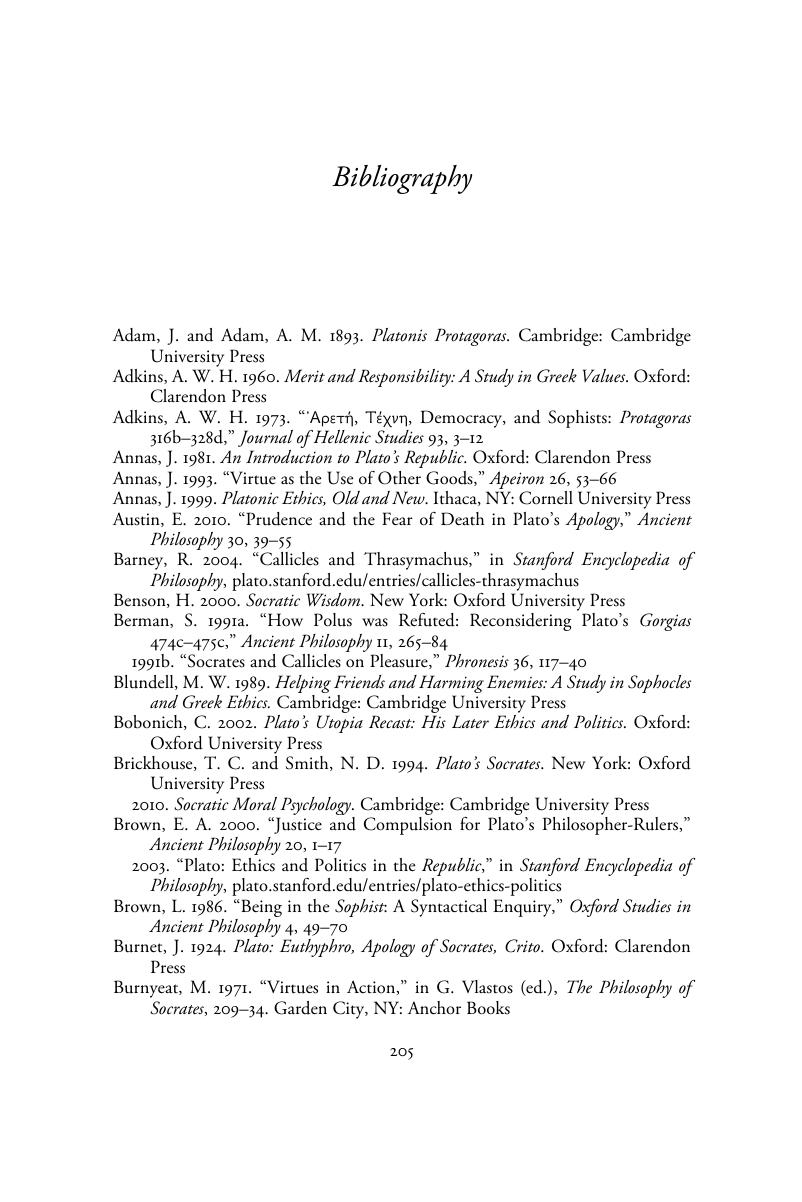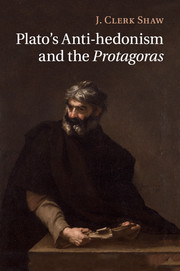Book contents
- Plato’s Anti-hedonism and theProtagoras
- Plato’s Anti-hedonism and theProtagoras
- Copyright page
- Contents
- Book part
- Glossary
- Introduction
- Chapter 1 Against hedonist interpretations of theProtagoras
- Chapter 2 Courage, madness, and spirit at 349d–51b
- Chapter 3 Drama and dialectic in Plato’sProtagoras
- Chapter 4 Drama and dialectic in Plato’sGorgias, revisited
- Chapter 5 Shame, internalization, and the many
- Chapter 6 Hedonism, hedonic error, and ethical error
- Chapter 7 Hedonist misconceptions of virtue
- Chapter 8 Popular hostility to sophists and philosophers
- Bibliography
- General index
- Index Locorum
- References
Bibliography
Published online by Cambridge University Press: 05 May 2015
- Plato’s Anti-hedonism and theProtagoras
- Plato’s Anti-hedonism and theProtagoras
- Copyright page
- Contents
- Book part
- Glossary
- Introduction
- Chapter 1 Against hedonist interpretations of theProtagoras
- Chapter 2 Courage, madness, and spirit at 349d–51b
- Chapter 3 Drama and dialectic in Plato’sProtagoras
- Chapter 4 Drama and dialectic in Plato’sGorgias, revisited
- Chapter 5 Shame, internalization, and the many
- Chapter 6 Hedonism, hedonic error, and ethical error
- Chapter 7 Hedonist misconceptions of virtue
- Chapter 8 Popular hostility to sophists and philosophers
- Bibliography
- General index
- Index Locorum
- References
Summary

- Type
- Chapter
- Information
- Plato's Anti-hedonism and the Protagoras , pp. 205 - 209Publisher: Cambridge University PressPrint publication year: 2015



